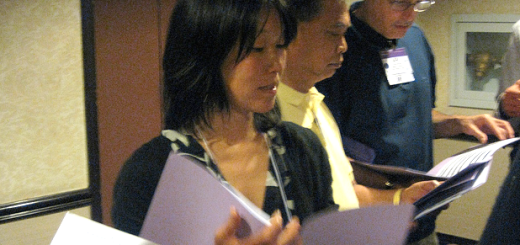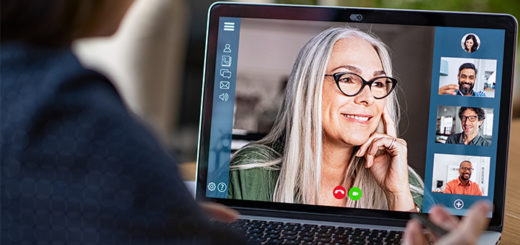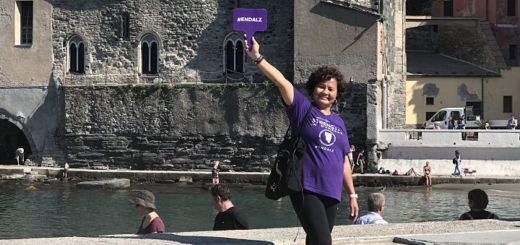We are still here for you: A message from our Chief Program Officer
The Northern California and Northern Nevada Chapter of the Alzheimer’s Association is here for you. Our physical doors may be closed but our staff is working remotely and continuing to serve our community, from our homes to yours. We spoke with Chief Program Officer, Claire Day about how the changes are affecting the way we support caregivers and those living with Alzheimer’s and other dementia.
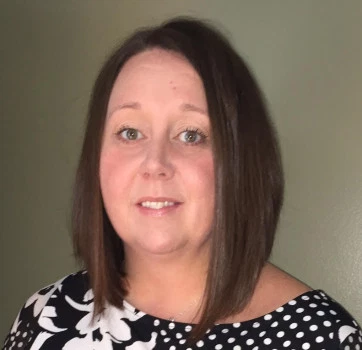
What have staff been doing in the last week?
On March 13, 2020 Harry Johns, President and CEO of the Alzheimer’s Association, made the difficult decision to close all physical offices and asked staff to begin working remotely. He based his decision on guidance from public health agencies.
“It has been quite a change in the way we’ve done business in the past,” said Claire. “Since the shelter in place order came out in California, our staff have been preparing to deliver as much service as we can in a way that allows everyone to access them safely from home.
“Our primary goal the first week or so was to make sure staff were safe and equipped at home. At the same time, we began to figure out which of our services we could start delivering in some sort of virtual capacity, meaning by telephone or online.”
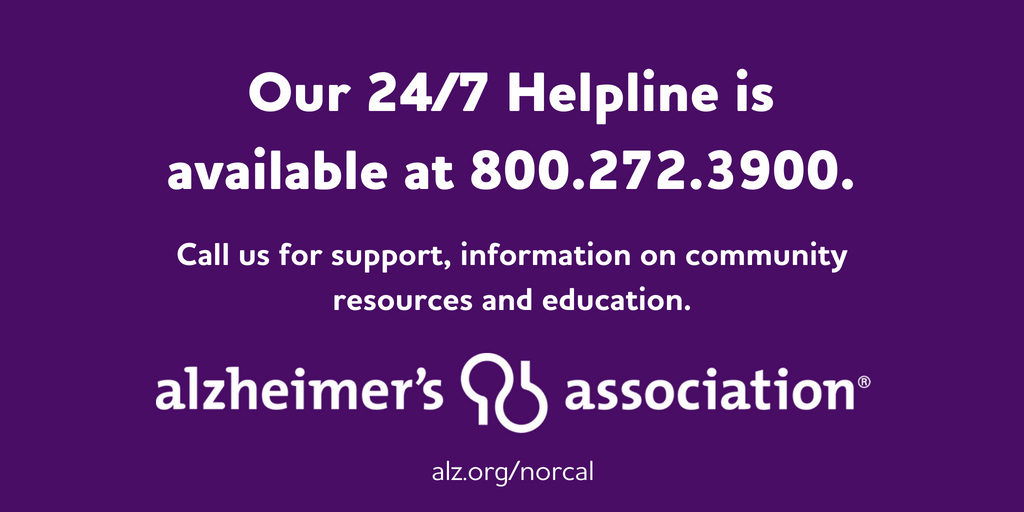
How can the Alzheimer’s Association help people remotely?
Prior to the COVID-19 pandemic, we provided support online and by telephone to thousands of individuals each year. During this time, when it is unsafe to gather in-person, our remote opportunities have grown.
The Helpline is always open
“The most important thing to know is that our 24/7 Helpline, 800.272.3900, is always available, day or night,” said Claire, “to our caregivers, to people living with the disease, professionals and all other community members.” That hasn’t changed: the Helpline is still fully functional.
“Our staff have been able to respond to follow up calls, even though they’ve been based at home. They’re prepared at home with private space and are able to continue to provide that high level follow up.”
Support groups
“We were able to convert most of our in-person support groups to telephone-based groups,” said Claire. “Our team has been working with our volunteer facilitators to help train them on how to lead phone-based groups. We already had a few phone-based support groups, so we have experienced facilitators who could share tips on how best to lead groups over the phone.
“Our staff and volunteers have been reaching out to our existing support group members to provide them with the phone number. We hope caregivers will be able to continue their routine of joining their monthly support groups.
“Additionally, we’re doing our best to promote our telephone support groups. We want to make sure everyone knows that support groups are available and open to everyone. Some individuals who have not attended a support group in the past may want to start attending them now.”
Education classes
“We are also moving in-person education programs to a virtual platform,” said Claire. “If you have a tablet, smart phone or computer, you’ll be able to access all of our trainings. They’ll be delivered live, which means you’ll be able to ask questions of the presenter, just like you would if you were attending an in-person program.
“It’s important to know that the Alzheimer’s Association is hosting virtual classes throughout the country. You and your family can register to attend the same class even if you live in different cities or states. You can all learn from the same presenter and hear the answers to the same questions.”
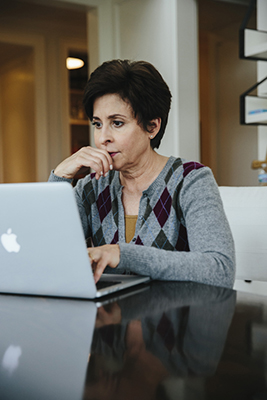
How do constituents sign up for classes or support groups?
There are two easy ways to sign up:
- Visit our website at alz.org/norcal
- Call our helpline at 800.272.3900
“You will have to register for any class or support group you’d like to attend,” said Claire. “We need to know you’re coming so we can provide you with the call-in number or web link.”
Are there any in person events?
Because the health and safety of our volunteers, staff and constituents is our top priority, the Alzheimer’s Association is taking precautionary measures. Most of the individuals living with dementia and many of their caregivers are older adults, a group who seem to be at higher risk for developing more serious complications from COVID-19 illness.
We are following the recommended guidelines of our county, state and federal agencies that are directing instructions on how to practice social distancing and keep everyone as safe as we can.
Claire said, “Today, no Alzheimer’s Association programs are meeting in person anywhere in the country. We are expanding our online programs to be able to support all of our constituents.”
What recommendations do you have for caregivers?
The Alzheimer’s Association 24/7 Helpline (800.272.3900) is available around the clock, 365 days a year. Through this free service, specialists and master’s-level clinicians offer confidential support and information to people living with the disease, caregivers, families and the public.
Receive help in your preferred language through our bilingual staff or translation service, which accommodates more than 200 languages.
Three ways you can connect with our Helpline:
- Call us. We are available around the clock, 365 days a year at 800.272.3900 (TTY: 866.403.3073).
- Chat with us. Click the “Live Chat” green button on our helpline page to connect with a member of our Helpline staff. Live chat is typically available from 7a.m.-7p.m. (CST) Monday through Friday.
- Online. Use this form to let us know how we can help you. We will respond to you within 24 hours.
The Alzheimer’s Association has also compiled a list of tips for dementia caregivers that can be found in English or Spanish on our website.

Dementia caregivers at home
“The Helpline has a lot of tips for caregivers on how to engage with their loved one who’s living with them,” said Claire. “There are a lot of things we can suggest that can be personalized to your situation. I encourage people to talk to our Helpline staff so we can support you at this time. We want to ensure you have consistency in your day to keep things as routine as possible.
“I encourage you to think about the things that are already in your home that you can use as a way to redirect your loved one into different activities. It could be something as simple as engaging them in activities around the home.
“I also want to remind caregivers that it’s okay to play gatekeeper with outside caregivers and guests. It’s critical families carefully monitor who’s coming in and out of the home to ensure that whoever enters is healthy. It’s okay to be proactive about that and put the person with dementia first.”
Early stage engagement
Claire said, “Our program staff have been busy collecting resources and gathering social engagement opportunities that people can participate in virtually.”
Here are some links to activities you and your loved one can participate in virtually:
Caregivers of individuals in assisted living
“We know that families are struggling with not being able to visit their loved ones in care facilities,” said Claire. “Even though you may have a loved one in a care facility you’re still a caregiver. We know how stressful that can be.
“Many facilities are getting creative in the ways they are providing connections with families. We’ve seen instances where facilities are setting up regular video calls. If you’re feeling stressed or worried about your loved one, you can always call the Helpline at 800.272.3900.”
Should I really call the Helpline?
“Yes!” said Claire. “Our team is here and ready to answer calls. We want to hear from you. We want to know if you’re doing okay. If something as simple as a phone call can help you, then please call us.”
The staff at the Alzheimer’s Association are still working hard to provide you with the care and support you need. If you’re feeling stressed, overwhelmed, or just need someone to talk to, the Helpline is available day or night at 800.272.3900.
For information on caregiving tips during this time please visit our website at alz.org/covid19.
Learn more:





